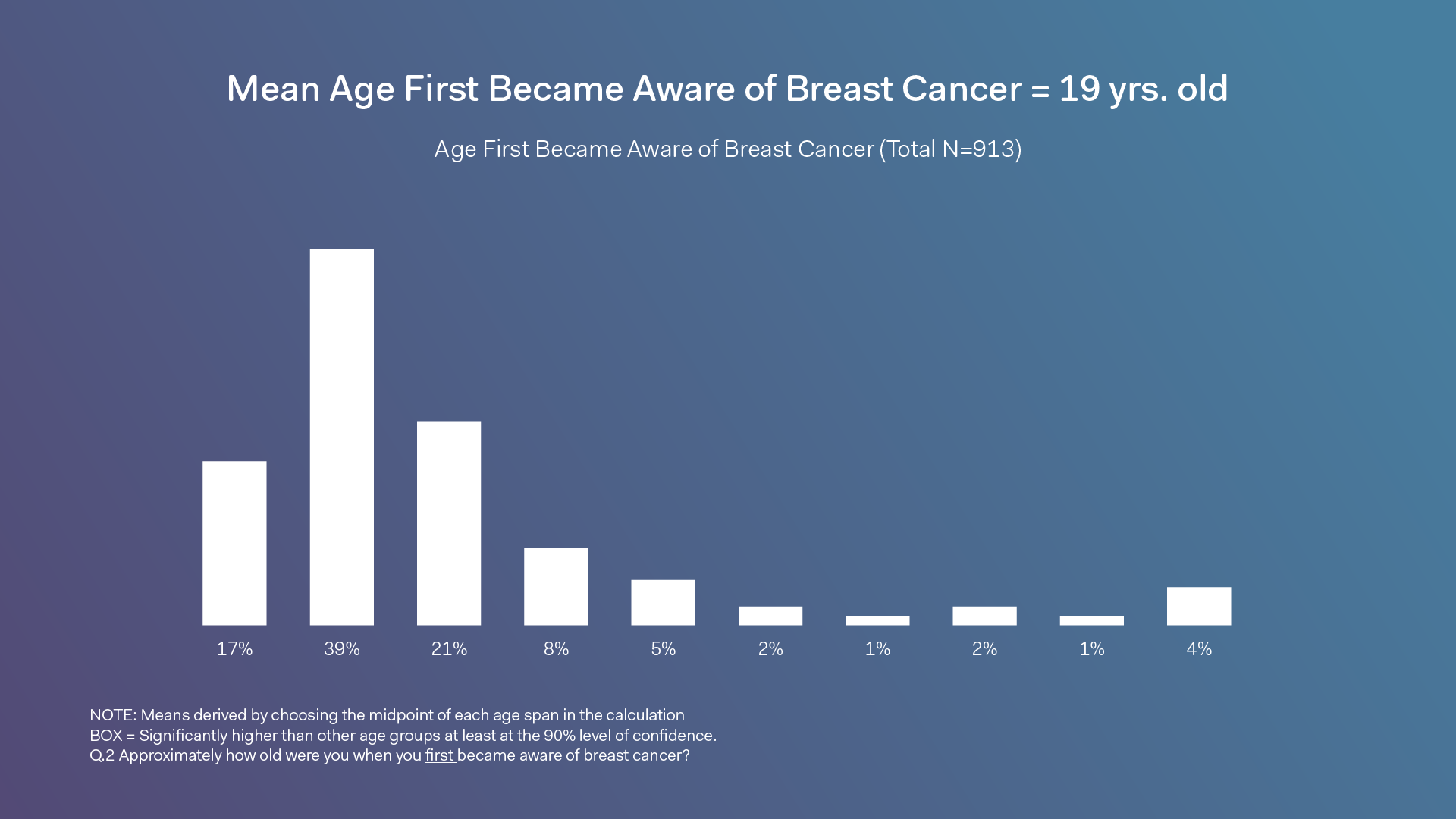Calling All Hispanic and Latina Women: Your Breast Health Matters

New breast cancer statistics are out—and they’re incredibly eye-opening. In 2022, about 85% of breast cancers were diagnosed in women who have no family history of the disease.1 These occur because of genetic mutations that happen as a result of the aging process and life in general, rather than inherited mutations.
At Hologic®, when we started conducting research, we noticed that not a lot of conversations were happening in the Hispanic and Latina communities surrounding breast health. When asked, 35% of Hispanic women said they are extremely worried about breast cancer 2—let’s change that! As women, it’s important to have open conversations with doctors (and each other) about breast health. As Hispanic women and Latinas, it’s crucial to open up about your experiences because they can save lives. We need to rise together.
Not All Breasts Are Equal
Our research found significantly more white women are aware of breast cancer by age 17 than Hispanic women.2 We’re talking 60% of white women here compared to only 39% of Hispanic women.2 That might sound shocking, but early findings show that many Hispanic women reported they didn’t know about the disease until their early 20s.2 Not only are these statistics alarming, but they are dangerous to women’s health. Breast cancer death rates for U.S. women are higher than any other cancer except lung cancer.2
While an overwhelming number of white women learn about breast cancer earlier in life from their moms at home, that’s not the case with Hispanic women.2 The latter reported that they’re actually twice as likely for their primary care physician to be their first source of breast cancer awareness compared to white women because they learn of breast cancer later, the initial study found.2 The revelation was surprising, considering how the close relationships Hispanic and Latin American family members have with one another.
Aside from the lack of breast health conversations at home, social determinants also play a significant role in this unfortunate disparity. Let’s face it: They impact nearly every aspect of care, including access to insurance, preventive care, and treatment. Hispanic women and Latinas are disproportionately affected by these factors, which is reflected in the lower rates of screening mammography among this group.3
It doesn’t have to be that way, though. We CAN break the cycle. We asked Hispanic and Latina women what their experience was learning about breast cancer growing up and how they plan to make their health a priority moving forward.
Norka, a Latina, explained how growing up in a third-world country limited her access to healthcare and how, typically, women aren’t as open when it comes to discussing breast health. Now, she openly discusses any discomfort or concerns with her family.
“[We are now] always, always, always giving each other information. The family is more united, and my friends are more united and more open to have these conversations,” she said.
Lori, a mother of three, shared the same sentiment. “We kind of forget about ourselves. Knowing my daughters, I’m going to have to [keep reminding] them to get their mammograms, just like my mother [did].”

Hispanic Women Are Less Likely to Be Diagnosed in the Earliest Stage of Breast Cancer
Statistics from the early patient “doorway” study demonstrated that 10% of Hispanic women haven’t even HEARD of breast cancer2, making the potential for late diagnosis a real problem. Language barriers are listed as a possible reason for the distressing gap.4
In addition, women in the U.S. who only speak Spanish are 27% less likely to get a screening mammogram than English speakers, according to a study presented at the American College of Surgeons (ACS) Clinical Congress 2020.4
Whether with our mother figures, friends, or healthcare professionals, it’s important to have open conversations where women feel comfortable to ask questions. And having access to education is key to raising awareness for breast cancer and imperative for early detection. Find a mammogram facility near you and get the conversation started today.
Disclaimers: The content in this piece is for information purposes only and is not intended to be medical advice. Please contact your medical professional for specific advice regarding your health and treatment. This information may be relevant in the U.S. and other markets and is not intended as a product solicitation or promotion where such activities are prohibited. Because Hologic materials are distributed through websites, eBroadcasts and tradeshows, it is not always possible to control where such materials appear. For specific information on what products may be available in a particular country, please write to womenshealth@hologic.com.
Hologic and associated logos are trademarks and/or registered trademarks of Hologic, Inc. and/or its subsidiaries in the United States and/or other countries. All images have been approved for use within this document.
-
1. Breast Cancer Facts and Statistics. Breastcancer.org. https://www.breastcancer.org/facts-statistics#section-us-breast-cancer-statistics. Accessed September 2022
2. MISC-08197 MQD Consulting for Hologic, Mammography Patient Journey: Doorway Study, November 2021, U.S. Accessed September 2022.
3. What Hispanic Women and Latinas Need to Know About Breast Cancer. Breast Cancer Research Foundation. https://www.bcrf.org/blog/hispanic-latina-breast-cancer-facts-statistics/. Accessed September 2022.
4. How Spanish Language Communications Is Playing a Role in Breast Cancer Detection. GE Healthcare. https://www.gehealthcare.com/insights/article/how-spanish-language-communications-is-playing-a-role-in-breast-cancer-detection. Accessed September 2022


